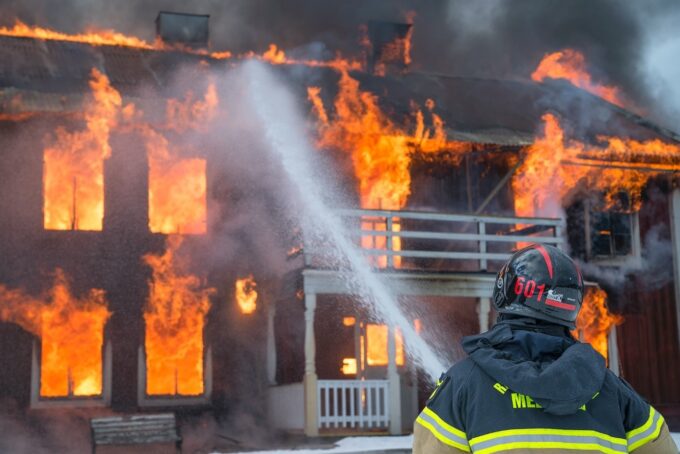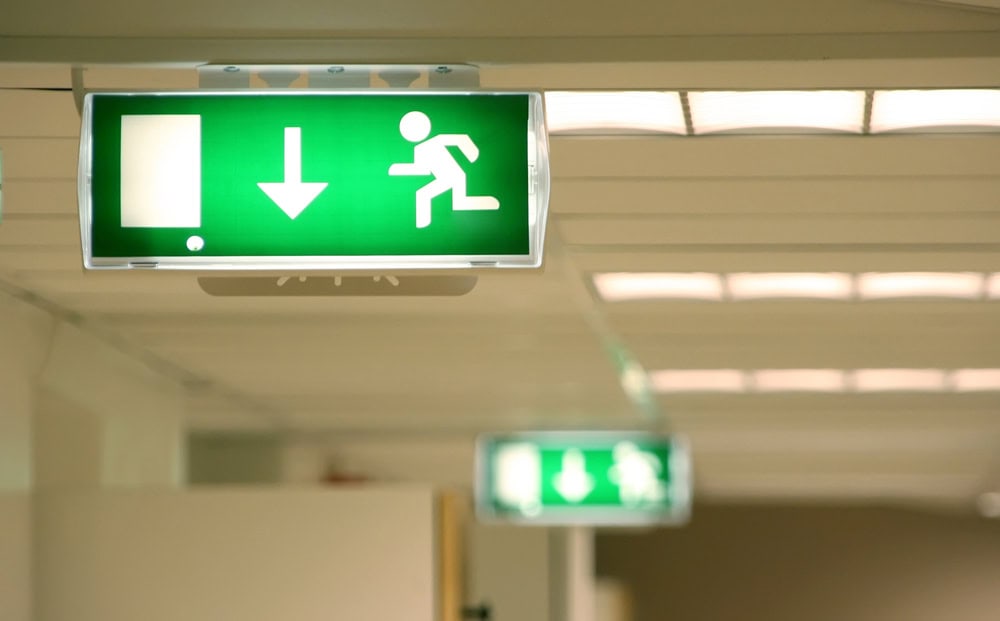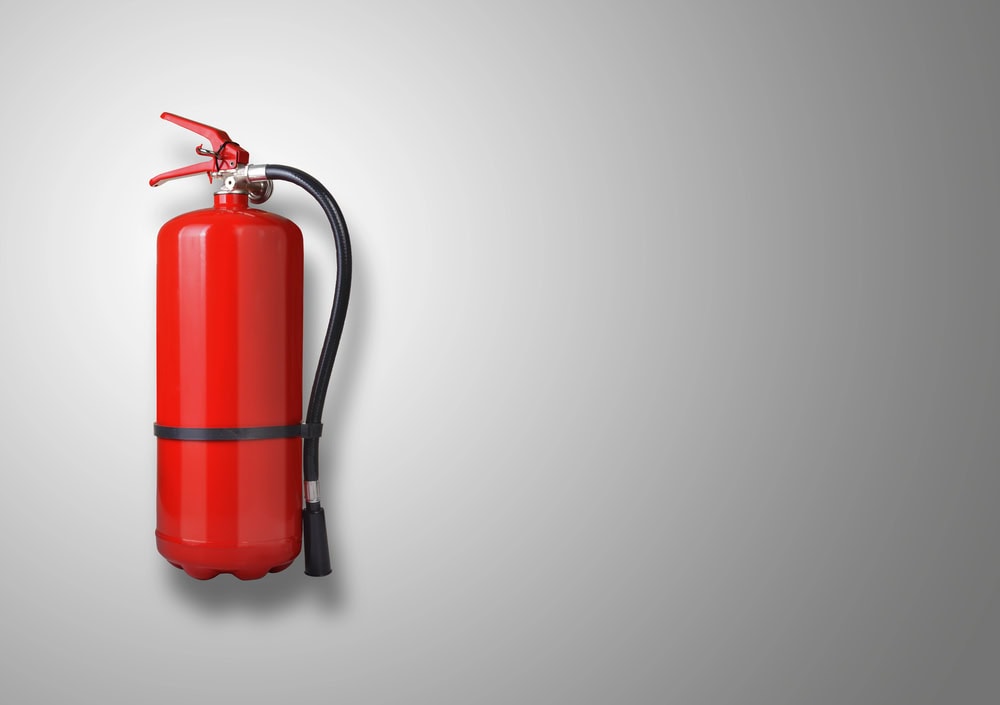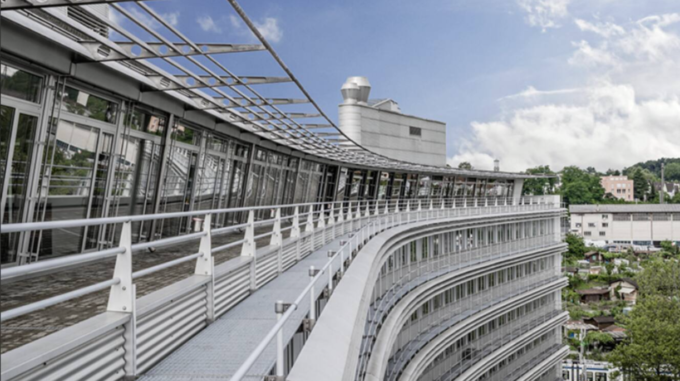"Three breaths in fire smoke causes unconsciousness".
Modern building technology relies on Internet technologies. The buzzword is the "Internet of Things. The industry promises itself time and resource efficiency, safety benefits and convenience from the networked world. But digitalization often stops at fire protection. With significant consequences.

The world of security technology in the building sector is changing drastically. A look at real estate planning and management reveals a multitude of virtual scenarios and intelligent components. By 2023, the smart city will be a reality. But where do we stand in terms of digitalization in fire protection? Smoke detectors are mandatory throughout Germany, but all too often the technology is faulty or outdated.
But what happens if an emergency does occur and the technology fails? Reliable and fast early smoke detection should be a matter of course. This applies to private homes as well as to commercial and industrial environments.
Even the smoke from the fire is life-threatening
Reiner Pieper of the BAB Brandschutz Akademie Berlin believes the dangers of smoke formation are underestimated. He was a local fire chief for 25 years, a city fire chief for five years, and an instructor for basic firefighting training. Today, he uses his knowledge from practical operations in fires, accidents and flood incidents in fire education.
"Fire smoke is extremely hot, dense and toxic. It contains carbon dioxide. That means 80% of fire victims don't burn to death, they suffocate from smoke toxins," he explains. "Just three breaths in fire smoke causes unconsciousness. Contained ammonia causes permanent damage with irritant and corrosive effects. Carbon monoxide and hydrogen cyanide with effects on blood, nerves and cells to poisoning."
Evacuation: A battle against time
In principle, therefore, the sooner smoke is detected, the better. Reiner Pieper on the background: "Smoke is faster than temperature. Most people think: If it's not hot yet, I can still extinguish it or pack my things, hold my breath and run out. But that doesn't work. In an enclosed space, you don't have a chance to breathe within five minutes. After 20 minutes, in a fully developed fire, there is no oxygen left in the air." The first two and a half minutes are critical to rescue, he said. Only a smoke detector that alarms in real time is thus a good smoke detector.
Digital is better!?
In the view of Matthias Wolff, the functionality of smoke alarms used in Germany is usually not guaranteed. He is the business manager of the German company LUPUS-Electronics for innovative and easy-to-use security and automation technology, based in Landau. The cost of maintenance would plunge housing associations and participating specialist companies into excessive administrative and cost burdens. The subject of mandatory smoke detectors would thus all too often be an annoying stress factor. And thus less prioritized.
"Smoke alarms need to be serviced annually. Fire alarm systems quarterly," Wolff says. "Lengthy scheduling for maintenance and no-shows are the practice. Often, properties have to be driven to over and over again. That's a lot of expense. The costs are usually two to three times what they were calculated to be. And yet, between maintenance intervals, you have no guarantee of functionality. In the 21st century, that's annoying."
Wolff is therefore committed to the Internet of Things (IoT) in smoke alarms. Its mobile smoke detector, the first in the world to operate in accordance with the DIN 14676-1C standard, performs a DIN-compliant self-inspection fully automatically with a ten-year battery life. All logs are stored in a data-secure cloud. The prescribed inspection interval of at least one year is reduced to every 24 to 48 hours. This is made possible by the connection via the narrowband IoT mobile network. Smoke alarms and current device status are communicated in real time via a smartphone app or web-based dashboard. The smoke alarm thus reaches the occupant immediately, even when he or she is absent. Optionally, an emergency call control center can even be connected.
"The problem is that Germany is lagging behind in digitalization in fire protection," he says. "A smart network of billions of interconnected sensors that detect something and forward it automatically and quickly - that works in many areas, so why not think that way for smoke detectors instead of relying on technology from the '70s?" he thinks.
Conclusion: Safety is not a game of chance
So when it comes to fire protection, no compromises should be made - because the consequences of smoke being detected too late are fatal. Rainer Pieper advocates speed above all: "If the smoke alarm goes off immediately, that is precisely the phase in which you can still get to safety. In addition, a reliable alarm is important, because smoke does not wake people up. People who are asleep do not smell the smoke and continue to sleep.
Matthias Wolff also points out the advantages of digital logging: "There is relatively little case law on the smoke detector obligation. But if something happens, lives and high property damage are at stake. If a maintenance log is then missing - then the trouble is really there," says Wolff.
Digitalization ideas in the area of smoke detection are therefore more than just a gimmick. Regular maintenance helps to avoid malfunctions and to define time windows for service measures in such a way that operational processes do not suffer. A win-win situation for everyone. So why not dare to be a little more digital? Because safety is not a game of chance.
Source: Kruger Media, Berlin









